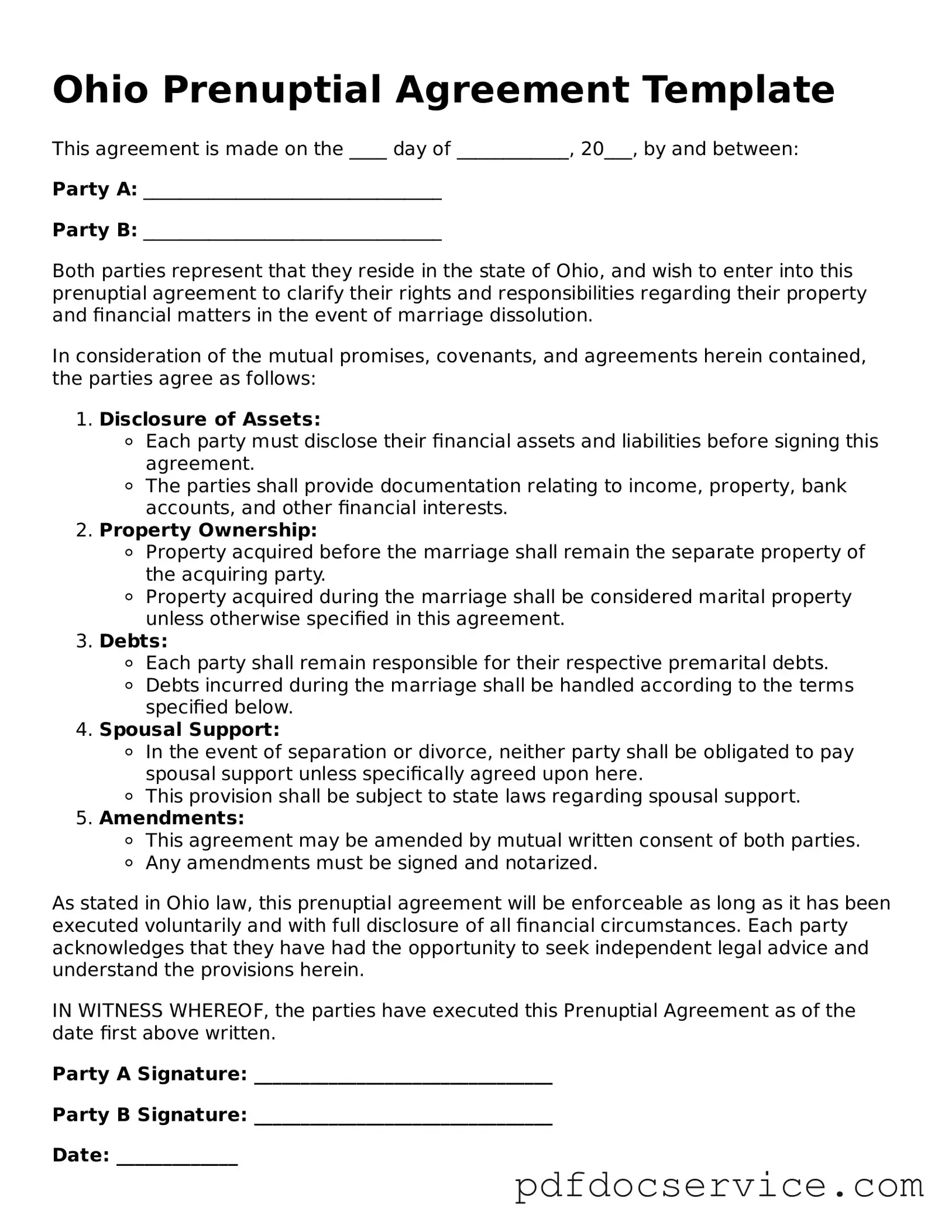Printable Prenuptial Agreement Template for Ohio
A prenuptial agreement form in Ohio is a legal document that couples create before marriage to outline the division of assets and responsibilities in the event of divorce or separation. This agreement serves to protect individual interests and clarify financial expectations, fostering transparency between partners. Understanding the nuances of this form is essential for anyone considering marriage in Ohio.
Open Prenuptial Agreement Editor

Printable Prenuptial Agreement Template for Ohio
Open Prenuptial Agreement Editor

Open Prenuptial Agreement Editor
or
Get Prenuptial Agreement PDF
Finish the form now and be done
Finish Prenuptial Agreement online using simple edit, save, and download steps.